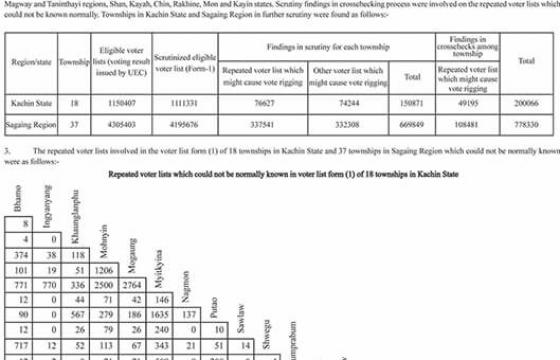Aung San Suu Kyi on a lot of occasions said that the rule of law within the context of military-drafted, 2008 constitution should be adhered in striving to achieve a federal form of government.
She said this when meeting with the 8 Ethnic Armed Organizations (EAOs) that have signed the Nationwide Ceasefire Agreement (NCA), on 28 June, and again when she met the non-signatory EAOs of United Nationalities Federal Council (UNFC), on 17 July.
On 28 June meeting with the 8 signatory EAOs, Suu Kyi said: “Some could ask, why we go along with this (constitutional) law even we don’t like it. It is because the future of a country, vested with equality, cannot be stable without the rule of law. Laws will be amended and made through the given legal channel and want our ethnic brothers and sisters to think the same.”
Let us ponder on this argument if it makes sense, particularly from the point of the peace process and national reconciliation.
According to Khu Oo Reh, spokesperson of the UNFC, “The rule of law is not only concern with the armed organizations, but tranquillity, termination of armed conflicts, protests, blood-letting are all included. In a country there are a host of problems and (having) the rule of law is only real if such (mentioned) issues are absent (resolved). And the peace we want is the one that happens under such conditions”.
But we cannot just jump on to the rule of law issue without clarifying or agreeing on the ownership of the country’s sovereignty. The ruling Bamar-dominated, National League for Democracy (NLD) government, including the military, considers itself to be the sole ownership of the sovereignty, while the ethnic nationalities staunchly believed that it is a shared-ownership, which has been robbed by the majority Bamar that let them to the political and armed resistance, in the first place.
The non-Bamar ethnic nationalities said that the independence from the British in 1948 is a co-independence, which in turn, gave them the entitlement as the co-owner of the country, leading to the notion of “shared-sovereignty”.
If the regime in power considers itself to be the sole ownership, issues like taxation and usage and extraction of the natural resources by any other party would mean breaching the given laws and thus must be punished.
But on the other hand, if the outgoing point is from those of the shared-sovereignty position, the EAOs have every right, within their inherited territories from their ancestors, to make use of the taxation of the population under their control, as revolutionary tax to defend their turfs, which the government is keen to dub as protection money or “Set Kye” in Burmese. The same goes for making use of the natural resources such as mineral extraction and logging for examples.
Thus we could see that even during the transition period of peace negotiations this kind of problems popped up frequently, as the military launched attacks and conduct offensives in the name of upholding sovereignty and protecting the population.
Seen from this perspective, this seemingly unrelated question of sovereignty becomes a core crucial issue that is connected to the drawing of a federal constitution.
This, in turn, pushes us further to consider if what Suu Kyi has been advocating to achieve constitutional amendment through adherence of the rule of law that is anchored in the military-drafted constitution could be tangible, which is neither federal nor equitable form of governance that the ethnic nationalities have been striving for.
It is important not to forget that the EAOs’ armed resistance is due to the fact that they were unable to push for the realization of their political aspirations through legal channel and that was why they have to resort to such actions.
And if it is the government’s wish to resolve the ethnic conflict through peaceful settlement with give-and-take negotiations, implementation of this rule of law literally with rigid principles would only contribute to more failure than success.
But this is not to say that lawlessness must be glorified and tolerated, but only to work out a transitional period solution, to be as tolerable as possible for all parties concerned, while casting an eye on the constitutional amendment that all could live with.
In sum, rule of law must prevail but exceptional cases like the sustainment of the EAOs and their dependants for the transitional period have to be worked out, before political settlement is reached. Otherwise, the government will have to act against the EAOs each time they make a move to survive as fighting forces and the progress made at the negotiation table will go down the drain and have to restart it all over again.






